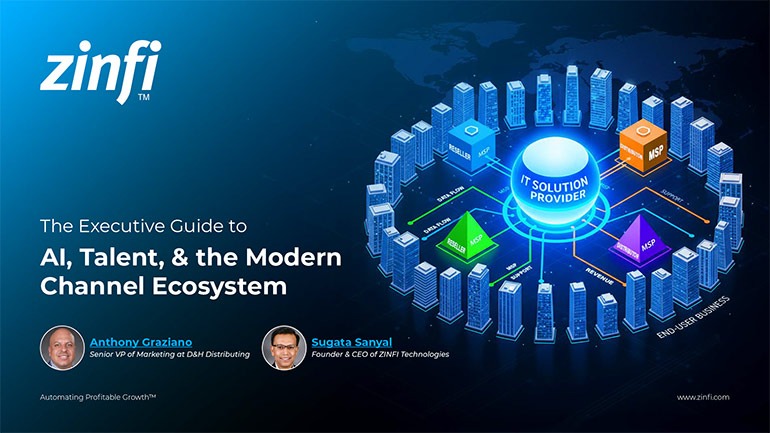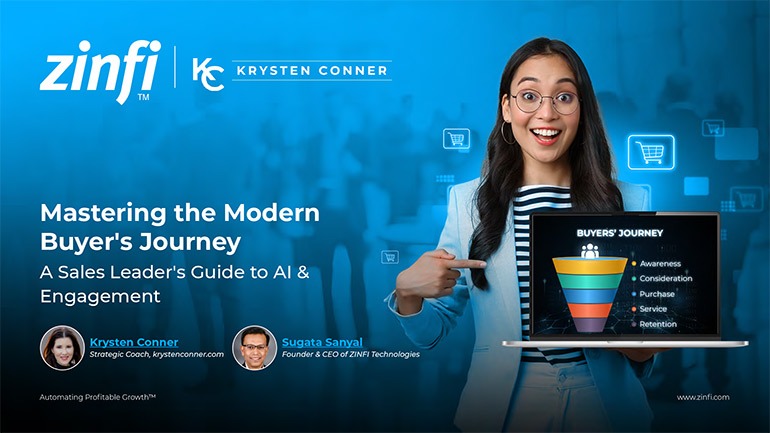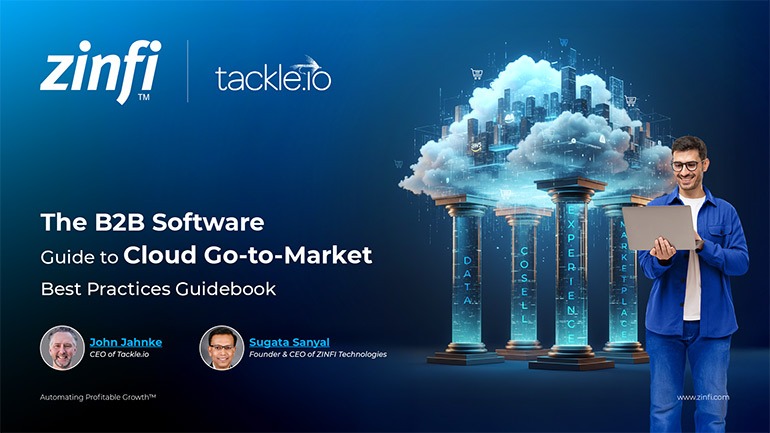Best Practices Articles

How PRM Software Automation Can Drive Up Partner Satisfaction
The entire world is getting digitized—from supply chain to manufacturing to service delivery to customer acquisition—but when it comes to the last mile of product and service delivery via a channel partner network, it is amazing to see that most companies haven’t deployed partner relationship management (PRM) automation to any significant degree. This leaves a lot of low-hanging fruit related to growth and productivity, but also neglects a crucial part of the vendor-partner relationship: partner satisfaction levels. That’s what we will explore in detail in this article.
Before providing specific recommendations, let’s briefly look at the lifecycle of partner relationship management (PRM). This relationship starts with an organization signing up to resell products and services from another. Just like any new relationship, in the case of PRM there it’s important to recognize there are certain expectations that partner organizations have with respect to a vendor’s program. Over time, as the partner organization learns how to sell, market and serve, it’s not uncommon for a number of issues or conflicts to arise, accompanied by a drop in partner satisfaction. As satisfaction drops, partner engagement drops, and eventually the partner organization stops selling the vendor’s products and services or reduces the transaction level substantially.
So what can a vendor organization do to sustain and increase partner satisfaction over time, and how can
PRM automation help?
- Make it easy to find. Business relationships are complex, and vendors tend to rely on the partner organization to search through their partner portal to find various documents, programs, plans and other assets and features. Most partner portals are difficult to navigate, primarily because content is poorly categorized and laid out. A state-of-the-art PRM software platform should allow a vendor organization not only to provide various categories of content, but most importantly to deliver them on a mobile-friendly platform using partner-specific profile information. This way, the only content that a partner sees is relevant to that partner, and the partner is not overwhelmed with a plethora of content that it may or may not need.
- Make it easy to learn. Learning applies to all aspects of a new relationship between a vendor and a channel partner. The first thing a partner organization needs to learn is how to apply to specific programs, get trained on new products and services, how to sell them and how to market and serve the end-customers. Partner relationship management (PRM) software can automate all of these processes end to end and make it very easy for a partner to learn about all aspects of the vendor’s products and services. Most PRM software today comes with an built-in learning management system (LMS), as well as additional tools related to partner sales management (PSM) that emphasize gamification, leader boards, rewards alignment and other features that enable and incentivize sales.
- Enable customer acquisition. The commitment to resell a vendor’s products and services requires significant investment from a partner organization. Therefore, the more the vendor can help a partner to get in front of new customers,—and not just settle for providing additional solutions to their existing line of products and services—the better the chance that the early relationship between the vendor and the partner will be mutually beneficial. We often hear channel partners praise vendors who make it easy to attract new customers by providing effective marketing and sales automation capabilities via PRM automation platforms.
- Grow existing accounts. Getting new customers is hard, but getting existing customers interested in new products and services is even tougher, and it can also pose risks. A partner may instantly lose credibility with an established account if they push new products and services that don’t work very well. This is where appropriate PRM automation capabilities can significantly help in growing existing accounts by providing only the most appropriate and relevant content, tools, training and programs sorted by partner location, type, and other profile parameters. Without a proper PRM system it is almost impossible to provide assets that are customized to individual partners’ requirements, and you will run the risk that partners may be alienating customers by pushing inappropriate products and services.
- Make money with ease. Finally, every channel relationship is based on establishing core economic gain and benefits for each involved party. Without a state-of-the-art PRM platform, it is almost impossible for the vendor to provide a partner with the right financial incentives and track performance dynamically to optimize partner margins and profits. Most organizations today run broad financial numbers and allocate only generic levels of margin. This “peanut butter” approach towards performance management can cause a lot of tension in the channel. The right PRM automation platform can not only ease these conflicts, but also increase partner satisfaction substantially by establishing a fair but highly visible performance management system.
Best Practices Guidebook
 Modernizing Channel Marketing: AI and Ecosystem Enablement Best Practices
Modernizing Channel Marketing: AI and Ecosystem Enablement Best PracticesDownload for FREE
 The Channel’s Shift to Partner-Led With AI Best Practices
The Channel’s Shift to Partner-Led With AI Best PracticesDownload for FREE
 Hyperscalers, ISVs, and AI: Shaping the Future of B2B Software Distribution
Hyperscalers, ISVs, and AI: Shaping the Future of B2B Software DistributionDownload for FREE
 Definitive Guide to a Partner Ecosystem-First Sales Strategy
Definitive Guide to a Partner Ecosystem-First Sales StrategyDownload for FREE
 The Partner-Led Digital and AI Transformation Best Practices
The Partner-Led Digital and AI Transformation Best PracticesDownload for FREE
 Startup Talent Recruitment: Hiring Missionaries, Not Mercenaries
Startup Talent Recruitment: Hiring Missionaries, Not MercenariesDownload for FREE
 The Future of Partner Relationship Management with AI in Partnerships
The Future of Partner Relationship Management with AI in PartnershipsDownload for FREE
 Cybersecurity for the 99%: Strategies from the Frontline
Cybersecurity for the 99%: Strategies from the FrontlineDownload for FREE
 Mastering Partner Relationships: A Strategic Approach to Business Growth
Mastering Partner Relationships: A Strategic Approach to Business GrowthDownload for FREE
 Mastering Partner Relationship Management: Keys to SaaS Channel Success
Mastering Partner Relationship Management: Keys to SaaS Channel SuccessDownload for FREE
 Navigating the AI Revolution: Guide for Partners in the Microsoft Ecosystem
Navigating the AI Revolution: Guide for Partners in the Microsoft EcosystemDownload for FREE
 Mastering the Modern Buyers Journey: Sales Leader’s Guide to AI & Engagement
Mastering the Modern Buyers Journey: Sales Leader’s Guide to AI & EngagementDownload for FREE










